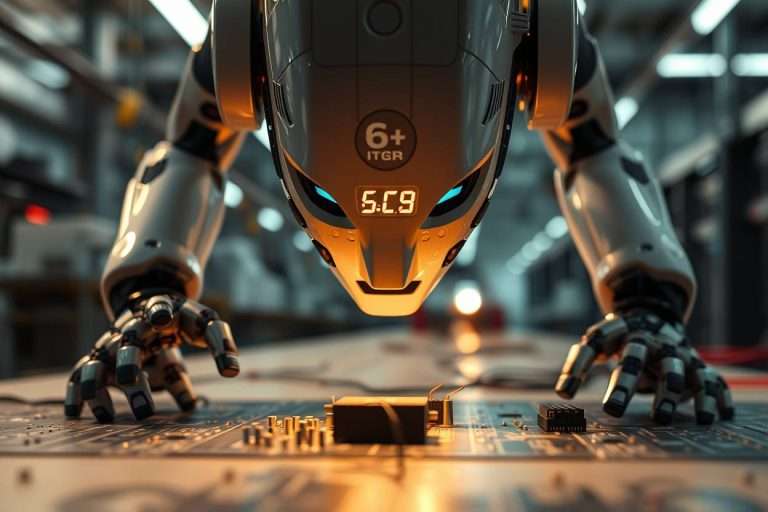AI Assistant cost explained: from basic tools to enterprise solutions

Intelligent virtual assistants (AI) are a very smart investment for your business and peace of mind. They are AI solutions that come in different forms, pricing and with various skillset to suit different business needs. But how much does an AI assistant cost? The answer is complex, but it varies from $20 a month to possibly hundreds of thousands of dollars in set up fees and on-going maintenance costs.
Key Takeaways:
- Flexible Pricing: AI assistant cost range from $20/month tools to enterprise solutions costing $100,000+, depending on complexity, integration needs, and usage volume.
- Boost Efficiency: They automate repetitive tasks like scheduling, emails, and data entry—freeing up time for more strategic work.
- Smarter Than Rules: Unlike rule-based automation, AI assistants can learn, adapt, and handle unstructured data or conversations.
- Always On: AI assistants work 24/7 without breaks, offering non-stop support across time zones.
- Scalable Support: They enhance customer service, lower labor costs, and grow with your business through continuous learning and integration.
Intelligent virtual assistants (AI) are widely used in modern businesses to assist human assistants. An AI-powered assistant usually helps run an automated data entry system and perform interaction tasks, allowing employees to focus on core business activities.
An AI-powered virtual assistant directly impacts your business growth, productivity, and profitability. This article explore intelligent virtual assistants, their core technologies, and their benefits to businesses and shows how to find your best fit.
What Is an AI-Powered Virtual Assistant?
AI assistants are custom AI solutions or AI tools powered by artificial intelligence that help automate a wide range of tasks for both individuals and businesses. By leveraging advanced technologies like natural language processing (NLP) and machine learning, these AI-powered assistants can understand and respond to human language, making it easier to manage tasks such as scheduling meetings, analyzing data, research, finance management or dealing with customers queries.
The primary goal of AI assistants is to boost productivity and efficiency by taking over boring tasks, allowing users to focus on more strategic activities. Businesses around the world are increasingly adopting smart automations to streamline workflows, improve communication, and enhance decision-making. With features designed to handle everything from data entry to meeting coordination, AI assistants are transforming the way we work and interact with technology.
Whether you’re looking to save time, reduce manual effort, or gain valuable insights from your data, AI-powered assistants offer a host of benefits that can help you stay ahead in the game.
Are AI assistants better than human assistants?
AI-powered virtual assistants differ from human personal assistants in many ways. To start with, human assistants are unable to multi-task, which gives an edge to the AI-powered assistants using AI agents that can run multiple tasks at once, and perform their own planning from a set goal.
Both assistants can perhaps perform the same tasks, but the time constraint makes the difference. AI solutions can use web search results, proprietary knowledge bases (everything about your company), they remember past customer interactions and also, the whole knowledge of AI models such as GPT-4 or Google Gemini. As a human assistant, it’s pretty hard to remember all that and find the needed information in an instance.
However, AI software lacks empathy, nuanced communication and perhaps can sometimes misinterpret the real user queries. It’s getting better, but those are the tasks where human assistants still have an edge.
Are AI virtual assistants better than rule based automations?
Programmers design traditional automation software for basic commands and predefined tasks, called also rule-based automations. These systems perform repetitive actions based on fixed parameters and filters, such as sorting emails, processing invoices, or moving files between systems. While efficient for structured workflows, they lack adaptability and cannot handle unstructured data or dynamic conversations.
In contrast, intelligent assistants perform complex tasks, expressing versatility in task execution and often, reasoning and planning capabilities.
Below are 5 key features and functionalities of AI-powered VAs:
- Use of Natural Language Processing (NLP): This feature allows intelligent VAs to understand and interpret natural language and mirror human conversation. NLP ensures accurate comprehension of diverse language nuances, fostering seamless communication and a user-friendly experience.
- Versatile Integrations: You can seamlessly integrate AI-powered assistants into many platforms and devices, not just mobile interfaces. These assistants help users achieve cohesive and omnipresent interactions across various platforms.
- Continuous Learning and Adaption: Intelligent assistants thrive on machine learning, allowing them to learn through user interactions. This continuous learning aids adaptation to enhance service delivery. It allows intelligent VAs to tailor experiences based on users’ preferences or improve responses to FAQs.
- Knowledge Integration: AI personal assistants can be connected to internal databases, CRMs, document repositories, and APIs to access and retrieve relevant information in real time. This enables them to provide accurate, context-aware answers to user queries, support complex workflows, and serve as a single point of access for company knowledge.
- Multimodal Interaction Capabilities:
Beyond voice or text alone, intelligent assistants can support multimodal interactions, combining speech, text, visual cues, and even gesture recognition (in advanced use cases). This expands their usability across different environments.
How much does an AI Assistant cost?
The cost for AI-powered virtual assistants vary greatly and is not a fixed number. The cost of AI-powered assistants depends based on:
- The task that it’s required to perform: if is a just task that can be solved using AI tools specialized, usually it would be a monthly subscription model (e.g. coding assistants, note-takers, design or general-purpose chatbots). They often have a free plan as a trial or you can upgrade for paid plans
- Does it require custom integration with knowledge bases, CRMs, website and external APIs?
- Does it require enterprise grade solutions and compliance?
- Maintenance costs and on-going fine-tuning, retraining and cost optimizations.
Simple tasks such as transcription, summarization, coding support, or chatbot interactions often fall under a monthly subscription model. These AI tools, like Cursor, Otter.ai, or ChatGPT, are typically accessible and affordable, with many offering free plans or trials and paid tiers ranging from $10 to $50/month.
Customized AI powered Assistants
If the assistant needs to be deeply integrated into your existing tech stack, such as linking with CRMs, proprietary knowledge bases, internal tools, or third-party APIs, development and integration costs will rise. These projects often require custom AI Assistants development and backend support, as well as an on-going maintenance fee.
- Custom integration fees: $5,000 to $50,000+
- Advanced API-based usage costs: Varies by provider (e.g., OpenAI, Twilio, AWS Lex)
- Monthly maintenance fee: $1000 to $5000+ (based on complexity)
Enterprise-Grade Requirements
Organizations requiring enterprise-level AI assistants must consider:
- Compliance (GDPR, HIPAA, SOC2)
- Security architecture
- Scalability and high availability
- Team-wide deployment and admin controls
Enterprise tools such as Microsoft Copilot, Salesforce Einstein GPT, or Dialogflow CX often start at $30–$100+ per user/month, and full implementations may cost $100,000+ when tailored to large teams or critical functions.
AI powered assistant cost: ongoing maintenance and management
AI assistants that learn from user behavior or require fine-tuning need continuous updates, monitoring, and retraining to maintain performance and relevance.
Typical monthly maintenance costs include:
- Model optimization: $100 – $5,000/month
- System monitoring and error handling
- Content and prompt updates and user feedback loops
This is particularly true for assistants built using large language models (LLMs) or hybrid architectures that combine multiple AI systems.
Why AI Assistant Pricing differ so much?
The pricing of an AI assistant depends on several technical and operational factors:
- Task Complexity: A simple transcription assistant is vastly cheaper than a multi-function AI that integrates with a CRM and performs sentiment analysis.
- AI Model Used: Assistants powered by large language models like GPT-4, Claude, or Gemini are more costly to operate than those using lighter or open-source models.
- Integration & Infrastructure: Connecting to proprietary systems, APIs, or real-time databases adds development hours and ongoing support costs.
- Customization & Fine-Tuning: Tailored assistants trained on internal company data or workflows can significantly increase setup costs.
- Query Volume & Usage: Tools priced per API call or token (like OpenAI or Google Cloud) may scale up quickly with frequent usage.
- Security & Compliance: Enterprise-level AI assistants with SOC 2, GDPR, or HIPAA compliance demand more investment in data security and support.
In short, AI assistant pricing can range from free productivity tools to multi-thousand-dollar monthly investments, depending on the assistant’s capabilities, business use case, and the scale at which it operates. As AI technology continues to advance, businesses should evaluate assistants not only based on cost, but on the tangible value they deliver in productivity, efficiency, and customer experience.
What are the benefits of using AI-Powered Virtual Assistants
There are several benefits of using a virtual assistant; however, intelligent VAs offer much more. In addition to automating routine tasks, AI-powered virtual assistants can answer questions in real-time, providing users with quick access to information. Below are five advantages AI-powered virtual assistants offer:
1. Improved Efficiency
Users delegating routine tasks to AI-powered assistants free up more time for important and value-added activities. Intelligent VAs can easily automate repetitive tasks like updating calendars, scheduling meetings, and managing email correspondences. In addition, intelligent VAs can answer questions in real-time, providing instant information and responding to user prompts, which further streamlines workflows. They also offer features such as voice command interaction, personalized experiences, and automation of routine tasks, enhancing overall efficiency.
Doing this avails users the time, energy, and focus toward strategic activities that contribute directly to increased productivity.
2. Enhanced Customer Support
Your assistant can aid in customer support through order management, inquiry response, and issue resolutions. With human direction, they perform these roles more timely and sometimes accurately than traditional VAs, leading to improved customer support and increased loyalty.
3. Cost Savings
Businesses save significant labor costs with intelligent VAs handling routine tasks. They get more with less, considering the timeliness and all-around availability of IVAs. Additionally, the increased efficiency and productivity from using these assistants reduces the business’ overall running cost, increasing its profit margin. AI virtual assistants streamline routine tasks and reduce wait times for customers during support interactions, further enhancing customer satisfaction.
4. 24/7 Availability
Unlike traditional human virtual assistants, you’ll enjoy all 24/7 availability with Intelligent VAs. They require no sleep or break and are not constrained by location or time zones. So they offer round-the-clock assistance to employees and customers, keeping your business in smooth and constant operation while addressing inquiries promptly.
5. Data-Driven Decision-Making
While interacting with users, intelligent VAs capture and analyze data on customers’ behaviors and preferences. This analysis gives businesses insight into trends, patterns, and users’ preferences, allowing them to make data-driven decisions about products and services for improved customer experience. AI meeting assistants are designed to help users manage notes and transcriptions during meetings more efficiently, adding another layer of utility. Some assistants also offer a deep dive into meeting data, extracting actionable insights that can drive further business improvement.
Key considerations when choosing an AI-powered virtual assistant
According to statistics, 46% of businesses in the U.S. use AI and chatbots. While there are multiple VA options, businesses can also consider AI chatbots for conversational and information retrieval tasks. You must choose one that fits your needs. Hence, this section outlines five factors to consider when selecting one to help you choose the best!
1. Integration Capabilities
Integration capacity is an important consideration when choosing an intelligent VA. Always check whether the application can integrate seamlessly with your preferred platform and software tools. Ensure compatibility with your project management systems, media platforms, and email clients before choosing an app.
2. User-Friendliness
The easier an AI-powered VA is to use and navigate, the more benefits it offers. So, choose an intelligent VA with intuitive navigation and a user-friendly interface. Such a VA encourages continuous engagement and a satisfactory customer experience.
3. Customization Options
When exploring your options, it helps to consider the customizability of an intelligent VA in line with your business needs, including creating a custom virtual assistant or technology stack tailored to your specific requirements. Ensure your preferred VA’s backend has customizable options compatible with your automated data entry system.
4. Security
Data loss and hacking through your assistant can cause serious harm to your business. So, check the security your AI-powered assistant offers and verify its reliability. You can also look up the creators’ reputation for further assurance.
5. Pricing Models
Your budget is another important factor to consider when choosing an intelligent assistant. When exploring your options, consider their cost and pricing model compared to your budget and estimated returns. Then, choose an option with the most flexible pricing model and the best returns.
Type of AI technology used for Virtual Assistants
Each intelligent virtual assistant uses a different AI technology or tool. This technology or tool may be simple or advanced, sometimes a combination. Thus, this section explores some AI tools used by popular virtual assistants.

1. Chatbots
AI chatbots are software programs that simulate human conversations. Chatbots use NLP to understand and interpret human languages. These AI chatbots are created to assist users with a variety of tasks, from answering questions to providing recommendations. Their primary function is to discern the intent of a user’s query and provide the most appropriate response. Some AI chatbots can also write content such as emails, reports, or code.
2. Scheduling Software
Scheduling software uses artificial intelligence, NLP, and machine learning to schedule and coordinate meetings with diverse teams and organizations across different time zones. It saves businesses time and labor for manual scheduling and helps improve meeting attendance and engagement while providing automated CRM updates.
3. Natural Language Processing (NLP)
NLP is an artificial intelligence technology that allows computers to recognize and understand written or spoken natural human languages. This is an advanced AI technology all intelligent virtual assistants use. They use it to convert human speech to form that computers understand for processing.
4. Machine Learning
Independent and adaptable assistants use machine learning to perform operations without direct instructions. Machine learning is an advanced AI technology where algorithms and statistical models help computers draw inferences from data patterns and perform tasks independently.
AI Assistant Tools and Features
AI assistant tools come packed with a variety of features designed to make everyday tasks easier and more efficient. Depending on the specific assistant and its intended use, you’ll find capabilities such as scheduling meetings, sending emails, making phone calls, and even analyzing large sets of data. Thanks to advanced AI technology, many assistants now offer generative AI features, enabling them to create new content like text, reports, or even unique graphics.
Integration is another key feature—AI assistants can often be connected with other popular tools and platforms, such as Google Assistant, to provide a seamless and user-friendly experience. This allows users to manage their schedules, communicate, and access information all in one place. Many AI assistants also offer a free version or free plan, giving users the opportunity to explore their features before committing to a paid plan. Whether you need help organizing meetings, automating emails, or generating content, there’s an AI assistant tool designed to meet your needs and help you work smarter.
Scope of Services of an AI-Powered Assistant
An intelligent virtual assistant can perform many services, from standard administrative tasks like scheduling to specific ones like customer support. The scope of service of a VA depends on the AI tools and technology embedded and what the human assistant wants to delegate. The following are examples of services that AI-powered assistants can deliver. Consider four popular services AI-powered assistants deliver.
1. Email Management
Intelligent virtual assistants help human assistants manage email by categorizing, sorting, and replying to emails. Since they function as email management tools, they optimize email communication for a streamlined workflow to avoid information overload and missed deadlines.
Here are some key responsibilities of an email management VA:
- Prompt response
- Email sorting and filtering
- Decluttering and unsubscribing
- Inbox organization
2. Scheduling
AI-powered scheduling assistants assist with timely and efficient meeting coordination for internal teams and external clients. Scheduling assistants are widely used by businesses struggling with human resources. They can be done via chat or by leveraging an AI Voice assistant that takes enquiry and confirm bookings. Automated meeting scheduling saves time and labor while eliminating errors and conflicting schedules.
Below are some top functions of a scheduling VA:
- Time blocking
- Efficient Scheduling
- Automated Reminders
- Team coordination
3. Data Analysis
Data analysis is a more specialized organizational task, but one you can delegate to an intelligent virtual assistant. Through interactions, AI-powered VAs collect users’ data and analyze it in real-time to learn behavioral trends and preferences. Businesses can then leverage this data to make informed decisions about improving products and services.
4. Customer support
Human assistants can also use intelligent virtual assistants for customer support to promote customer satisfaction and loyalty. Customer support VAs provide swift and accurate assistance when handling customer inquiries, troubleshooting issues, and processing orders. Their services save businesses labor costs and help in resource optimization.
Experience and expertise of the Assistant
While AI-powered virtual assistants offer many benefits, they do not completely replace human virtual assistants. Some features remain unique to human assistants. For instance, AI-powered chatbots can readily provide basic information to customers, but you need human assistants for complex queries.
New features are regularly introduced to AI-powered assistants, and human expertise is often needed to take full advantage of these enhancements.
These human assistants leverage their skills and experiences to increase productivity and generate reasonable investment returns. Their programming and data analysis skills often allow them to better command AI-powered assistants for increased productivity.
When human VAs receive programming, machine learning, and NLP training, they gain proficiency with AI tools. This allows their employers to enjoy the best of both worlds!
Can You Use AI-Powered Assistants with Humans?
Absolutely—AI-powered assistants and human virtual assistants can work together to deliver even greater value for businesses and individuals. While AI assistants excel at automating routine tasks and handling large volumes of data quickly, human virtual assistants bring a personal touch and expertise to more complex or nuanced tasks, such as customer service, creative writing, and problem-solving.
By combining the strengths of both, businesses can create a more efficient and responsive support system. AI-powered assistants can take care of repetitive tasks, freeing up human assistants to focus on high-value activities that require critical thinking and empathy. This collaborative approach not only boosts productivity but also ensures that customers and teams receive the best possible support. In today’s fast-paced business environment, leveraging both AI and human assistants is a smart way to maximize efficiency and deliver exceptional results.
Can AI Powered Assistants replace humans?
Thus far, you’ve seen that intelligent virtual assistants are software programs that imitate human assistants to perform automated tasks. The article also showed some key technologies AI-powered assistants use, such as natural language processing and machine learning.
As established throughout the article, an AI-powered assistant has several benefits, but regardless of advancements in AI, they still need human intervention and it won’t replace them anytime soon.
In the future, the collaboration between AI-powered assistants and human assistants is expected to become even more seamless and productive, further enhancing meeting efficiency and insights.
Conclusion
In conclusion, AI assistants are powerful tools that can transform the way businesses and individuals manage their daily tasks. With advanced features like automation, data analysis, and generative AI, these virtual assistants help automate repetitive tasks, save time, and provide valuable insights for informed decision-making. Whether you need support with everyday tasks or are seeking a robust AI solution for your business, there are a variety of tools and features available to suit your unique needs.
By understanding the benefits and capabilities of AI assistants, you can make smarter choices about which assistant is right for you. As artificial intelligence continues to evolve, we can expect even more advanced features and greater integration, making AI assistants an essential part of any productivity toolkit. With the right AI assistant, you can reduce costs, streamline your workflow, and focus on what matters most—achieving your goals and thriving in a competitive world.




